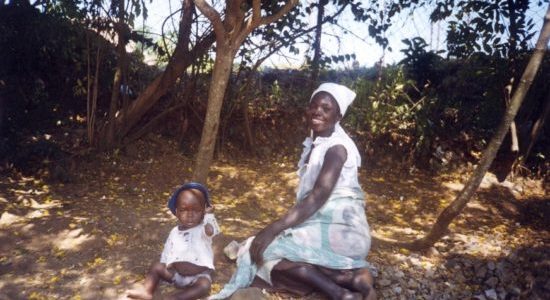For me, it all started with a simple question.
The year is 1998. I have just been asked to teach at a conference in Malawi, Africa where pastors and leaders from eleven African nations will gather for a week of worship, learning, and community.
I have never been to Africa. I have lived and served in impoverished urban communities here in the US for years, but nothing has prepared me for this.
My responsibility at the conference is to teach and encourage the 120+ women who will attend. I meet with the conference director’s wife to ask what she feels the women need most. She crinkles her brow and thinks for a moment, then replies, Please teach them not to take their babies to witchdoctors. I blink and nod as if I know what she’s talking about, thinking I am so not in Kansas anymore.
The women begin to arrive. A few of them are finely dressed and educated but the majority are illiterate villagers wearing the only clothes they own – and most are barefoot. All of them, however, are beautiful, warm, courageous and dignified women who raise the roof with their song, dance and laughter. The conference is being held in a crumbling concrete building with a corrugated roof. The men meet inside during the day on chairs while the women are outside on the ground in the hot sun.They cook the noon and evening meal over open fires and sleep on the ground. I immediately overstep my bounds by asking the male leaders for chairs and a move to a shaded venue for the women. There is a bit of debate – the women are too noisy, they’ll disrupt the men’s sessions, they like sitting on the ground – but this is non-negotiable. The women are delighted.
They eagerly participate in several sessions each day. They laugh and weep, ask questions and argue, they pray for each other and their sick, malnourished children. They are opening up, so one afternoon I decide to do an informal Q & A session so we can learn more about each others’ daily lives.
First, I go to the market to buy fresh fruits, biscuits and drinks. I lay them on a table under an awning. One by one, the women approach as if they are taking holy communion. They return to their seats with food for themselves and their children tucked in the folds of their colorful chitenzes. While they eat in silence, I explain what we’re going to do. I tell them they can ask me any question they want about my life in America and I will do the same in return. We’re sisters, I say.
A Mozambican woman rises without hesitation. She stands proudly on bruised and bare feet that have carried her for many days on the road from Mozambique to Malawi – trudging under a scorching sun with her friends, carrying babies on their backs and balancing heavy bundles on their heads.
Now this woman stands and voices the only question that really matters to any of them:
Does anyone in your country see us?
I feel like I have been stabbed in the heart. I expect her to ask about my children or how we wash clothes or what we eat or whether we take our maize to a mill. But she cuts right to the heart of the matter. After twenty-two years of building relationships in Malawi, I now understand more fully what she was asking, but even at that moment, I knew.
Does anyone in your country see us?
Does anyone in your country see our desperate struggle to survive?
Does anyone see our children who are just as precious to us as yours are to you?
Does anyone see beyond our poverty to our possibilities? To our strengths and talents, our hopes and dreams?
Are we visible? Do we exist?
I stand and weep, openly and freely. They wait patiently for my answer and many weep with me. I tell them that the only answer I can give right now is no. That, when I was asked to come here, I had to look Malawi up on a map. That I know nothing about your lives or your struggles or dreams, but I want to. Please tell me what I don’t know; tell me what you want me to know. Help me see. And for the rest of that day and that week that’s exactly what they do. I listen, pray, learn, and teach what I can.
When it comes time to leave, we part with hugs and tears and, on my part, an inward promise to return with a different answer. I know I can’t change the world, but I can do something. If not, I can never look them in the eye again and call them my sisters. Something has to change, starting with me.

